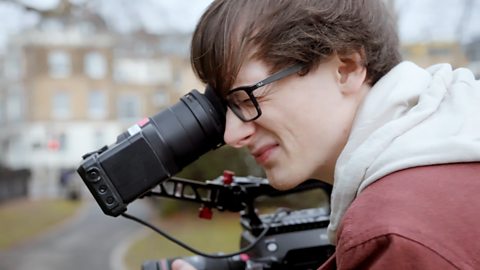Have you ever wondered what all the different roles are that go into making a television drama series? There are producers, directors, camera operators, but also first assistant directors, runners and even a behind-the-scenes stills photographer.
Find out more about jobs in TV and film
We spoke to four trainees on ±´”„tv One drama Ralph & Katie to find out about the jobs they did, and also how their disabilities were accommodated on and off set.
Ben's story: trainee runner and assistant director
It’s an interesting and exciting profession – every day is something different.
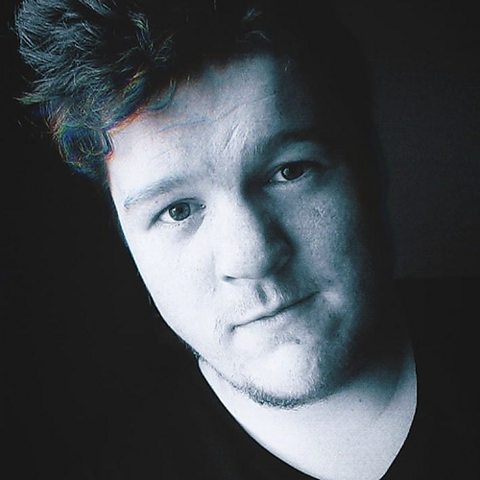
I got interested in TV and film at an early age. In high school I found a love of drama and that led on to helping the drama teacher with recording performances. I went on to do Film Production at the University of Salford and I’m now in my fourth year doing a master’s in Production Management.
Everyone who enters the TV industry has their own way of getting into the industry – it can be through knowing someone, winning an award or there are traineeships and apprenticeships.
Find out more about opportunities to help you get your foot in the door at the ±´”„tv
I joined Ralph & Katie through The Disabled Artists Networking Community (DANC), [which is a community that helps deaf, disabled and/or neurodivergent people access the arts and media].
I was on a DANC panel talking about my experiences as a disabled person and the Ralph & Katie producer was in the crowd. She told me about the production crew - which included people with a range of disabilities - and asked if I wanted to be a part of it. It was an exciting opportunity – cherish those as you don’t know when they’ll come.
As a runner, I had to make sure the actors were well fed and where they needed to be. On set I also needed to make sure all heads of department were happy: the producer, director and sometimes the executive producers. The most important time of day is morning on the production set. The actors need to get into costume and make-up – you need to tell others they’ve arrived and make sure they’re where they need to be and at what time. When the cameras are on you have to make sure everyone is quiet. Other duties included making sure the tea table was refilled, that supplies and provisions were there.

On Ralph & Katie it was different because everyone understood my disability.
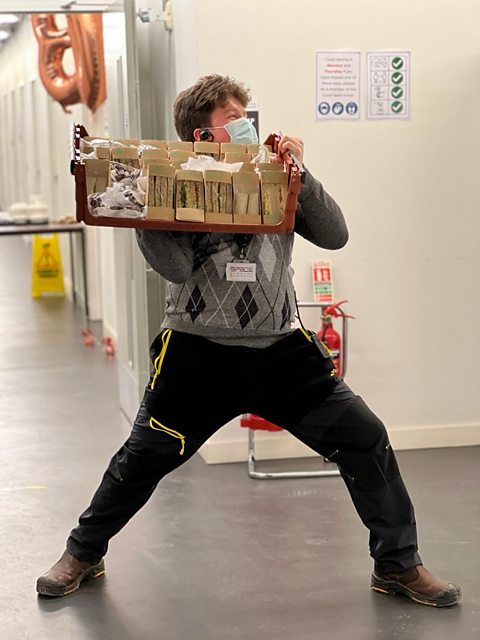
This was my first professional job and I had the usual worries around being a disabled person as well as the additional worries of ‘am I doing the job right?’. On Ralph & Katie it was different because everyone understood my disability. Those worries were diminished because of that support. It was great and very refreshing – I would like to echo that in my career.
Some parts were challenging. I have an underdeveloped right hand, called Poland syndrome, which affects my right hand and forearm muscle, so I have to think about different ways of doing things. Maintaining the tea table I had to carry gallon jugs but I couldn’t carry two, so I had to find a different way around carrying them. That was quite fun – you have to find your own way of doing things.
It’s also hard to comprehend that there is a lot of standing around. At the beginning you think ‘am I doing something wrong?’, ‘I should be doing something’. But don’t feel like you need to do something – it’s just the way things are sometimes. There’s a lot of waiting around in TV.

Mistakes are important – you learn very quickly from mistakes not to do something again.
People are afraid to make mistakes these days but you can only learn from doing something wrong. One time on Ralph & Katie I’d assumed we weren’t recording – I didn’t hear anything on the radio, I was getting the cast ready and they were good to go. I clicked on the radio and said ‘cast are ready to travel’ and heard a mildly angry assistant director say they were still recording and ‘cut’. It had actually been a quiet moment in the recording and they had to retake. Mistakes are important because you learn very quickly from mistakes not to do something again.
If you want to work in TV, make sure you do as much as possible. For me it was chasing up every opportunity, emailing and messaging everyone. Research everything you can about being a runner – ScreenSkills and Bitesize Careers are amazing. Make sure you learn what it is you’ll be doing, and look at all the other people’s roles too.
Myfi's story: casting assistant trainee
This experience really set me up and taught me so much of the basic knowledge you need to get into casting.
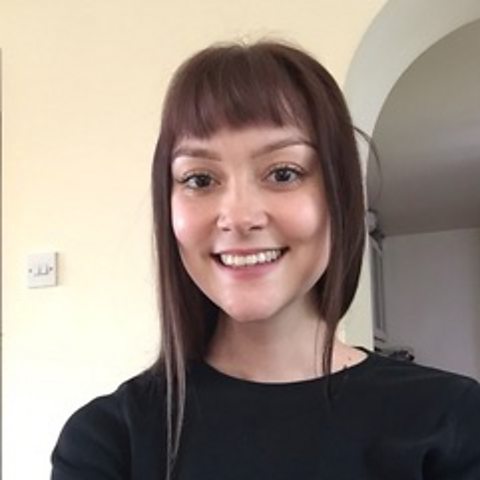
I did Film Studies, Dance and English for A-levels. I knew I wanted to study TV further so I did a BA (Hons) degree in Film and Television at University of the Arts London. I started working as a runner on sets for daily TV programmes, but then I had to isolate during the pandemic. I knew on-set roles weren’t right for me. I’d always been interested in something people-focused and focused on performance, which linked in with my dance background. I saw the casting role on the Deaf & Disabled People in TV (DDPTV) Facebook page, applied and got it. It felt great!
It turns out there are so many careers in film and TV that aren’t about being on set.
It turns out there are so many careers in film and TV that you can do that aren’t all about being on set. Things like development and casting. You don’t really know they’re things until you become a little bit more acquainted with the industry. That’s one thing that I wish I’d known when I was younger, that these things were an option.
Day to day I was working from home. The team would meet on Zoom in the morning and get up-to-date with the plan for the day. I was tasked with looking through actors for roles, reading scripts and writing a description of what the character is, to send out, contacting agents asking them for auditions, writing things like cast lists, learning about agreements, etc. As a casting assistant, you’re a bridge between the actor and the producer and director.

It was empowering. It really built up my confidence.
Working on Ralph & Katie was empowering. It really built up my confidence. I have a rare autoimmune disease, which causes some physical problems and means I can’t stand on set for long periods. I also need the flexibility to attend hospital appointments and work from home when I need to. When I started, the team was really lovely and welcoming. Everyone was understanding but nothing was ever made a big deal. I didn’t feel a sense of guilt or shame or that I wasn’t doing my job well.
Since then I’ve been doing some freelance work in casting, working with the Ralph & Katie casting director, Andy Pryor, who works hard to improve diversity and inclusion in the industry. This experience really set me up and taught me so much of the basic knowledge you need to get into casting.
My advice if you want to work in TV is to keep upbeat. Sometimes the industry is quite tough and going into it with an open mind and a positive attitude is a breath of fresh air on set. It also helps to be organised, show up on time and make sure if you’re doing admin that it’s all spelt correctly and you’ve done the best you can.
Ngozi's story: stills photographer trainee
I want to be a director, so this experience was great for finding out how a set works.
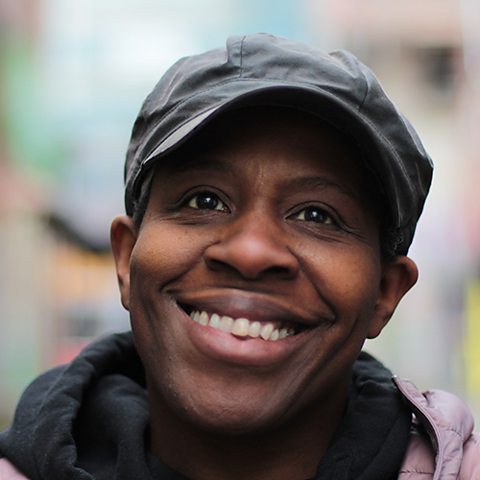
I struggled at school. I loved certain aspects, and the stuff that was less academic. I did media-related BTEC subjects at college. I went to university but I didn’t get in straightaway – I had to go back to college first. I then did a BA (Hons) in Television and Radio Production at Salford University, and an MA in Documentary Film (Editing and VFX for TV, Film and Digital Media).
I did freelance work for an arts organisation, leading the digital production, teaching kids how to use cameras and make films, and then I applied for a trainee scheme at the ±´”„tv. I was made redundant after a few years and worked some jobs that I didn‚Äôt really enjoy but then managed to get back into the ±´”„tv. That‚Äôs where I‚Äôve been ever since.

You have to be invisible, but your main job is to capture the scene.
In TV productions, you have a stills photographer. If the producer wants certain scenes captured, there’s a dedicated photographer to take those photos to feature in magazines, etc – like the ones on the Radio Times cover page. There will be specific scenes within the drama they want to capture. I got into it through an online photography project that I did – the producer liked it and we met through The Disabled Artists Networking Community (DANC). I had mainly done architecture photography but I’d recently taken some pictures of an event so I showed those, because you need to demonstrate that you can take pictures of people and movement.
To do this kind of job, you need to have some acumen at taking photographs: good position, looking for the story within the scene. I was there one day a week, so I watched the permanent stills photographer, Ben Blackall, who gave me so much of his time. He showed me where to position myself within the set, and what to look out for in a scene to take a great photo. You’re not the most important person on set – the production team don’t need you to do their job but you need them to do your job, so you need to be respectful. You have to be invisible, but your main job is to capture the scene.
I'm a wheelchair user. The challenge was mainly the physicality of the set.
I'm a wheelchair user. The challenge was mainly the physicality of the set in terms of there being a lot of people in a small space, so you had to negotiate where to go. It was about trying to find a good position and having an understanding that I can’t move. It was just about trying to think differently and having the confidence to know when to say ‘can I go in?’ It’s also about making friends with the crew – they’re the key to you getting a good shot. The production team also got me an attachment to make my manual wheelchair electric, for on-location filming in the Lake District.
I want to be a director, so this experience was great for finding out how a set works and how a drama works. It opened my eyes to how hierarchical it is, and why it has to be. You have to have some kind of regiment because there’s so much going on, there’s money involved and you’re dealing with time constraints, so everyone needs to know what they’re doing.
If you want to work in TV, you need to be passionate, you have to have lots of creative ideas, get out there and do stuff. Join networks, meet-ups, clubs, start an after-school club, find a community that will help you make films, or create one yourself: get friends, make films, have a screening at home with family or in school. The media isn’t just about being an actor or a presenter, you can also be the graphics designer, editor, sound designer, work in props, all sorts of things. Even the cakes and bread in the background in Ralph & Katie were all designed by someone to make it look realistic!
Claire's story: electronic press kit (EPK) producer trainee
One of my favourite moments was being in one of the scenes as well!
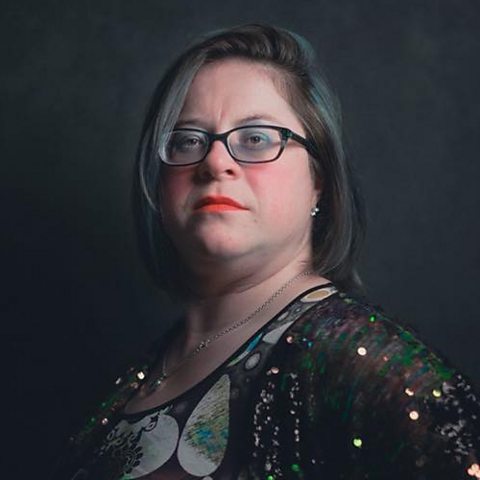
As an EPK producer trainee I filmed behind the scenes of the show. I‚Äôve been very keen on cameras since I was young. I always wanted to be a filmmaker. I did GCSE English, NVQ Level 2 Maths and a BTEC in Performing Arts. I later did a foundation degree in Media Production at Bolton University and then a top-up degree in Media Production. I got a 2:1. My first job after graduating was as a runner for ±´”„tv Children‚Äôs programming. I also practised my camera skills making short films for charitable organisations in my local area, Rochdale. My head works like an editing suite ‚Äì when I watch TV I know which camera is filming the different angles.
I’ve done a lot of networking since I graduated in 2012. I’d been all over the place, travelling and meeting different people. In 2016, an artistic director got in touch with me, about photographing people with Down’s syndrome and different disabilities, to produce a book of photos. And on that shoot in London I met a lady called Jules Hussey, who’s the producer of Ralph & Katie. She then found me through the The Disabled Artists Networking Community (DANC), we had an informal interview and she invited me to come and work on the set.
Learning on the job is better for me.

I loved every single moment of working on Ralph & Katie. The production team was amazing. Everybody was kind, considerate and generous. They made sure they had time for me. Learning on the job is better for me, so that I understand and I know what I’m doing. One of my favourite moments was being in one of the scenes as well!
Each day I’d meet the producer and ask her questions about what I needed to do. She’d say things like ‘we need to get shots of people on the set working’. She’d suggest interviewing people from each department to find out how the department runs. She’d suggest going outside to film catering and other people's roles, even recycling on the shoot, as it’s all part of the production. I went through all the departments: costume, make-up, hair, sound, directors, the producers… There was all sorts going on, so I had to be very aware of what was going on and keep my eye on everything to get all the shots I could.
Be confident and you’ll get the most out of your experience.
For this role you need photography and camera skills, and to make sure you’ve got the right camera. You need a good eye for keeping the shot nice and clean, the right lighting in the background and having the subject central. You also need good communication with other people on set, so you can ask them questions in interviews and film their answers, as well as a good, steady hand to hold the camera still. Be confident and you’ll get the most out of your experience.
Ralph and Katie: 'People will now want to work on an inclusive set' videoRalph and Katie: 'People will now want to work on an inclusive set'
Find out how the production of ±´”„tv One's Ralph and Katie was made as accessible as possible.
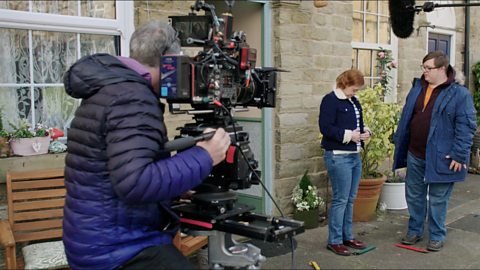
±´”„tv One drama Ralph & Katie. video±´”„tv One drama Ralph & Katie
Find out more about the uplifting story of Ralph & Katie on ±´”„tv One.
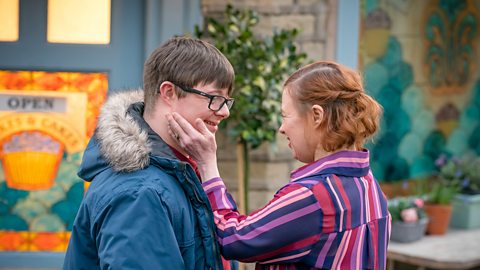
Careers in the media and creative sector
Meet young people working in the media and creative sector.
